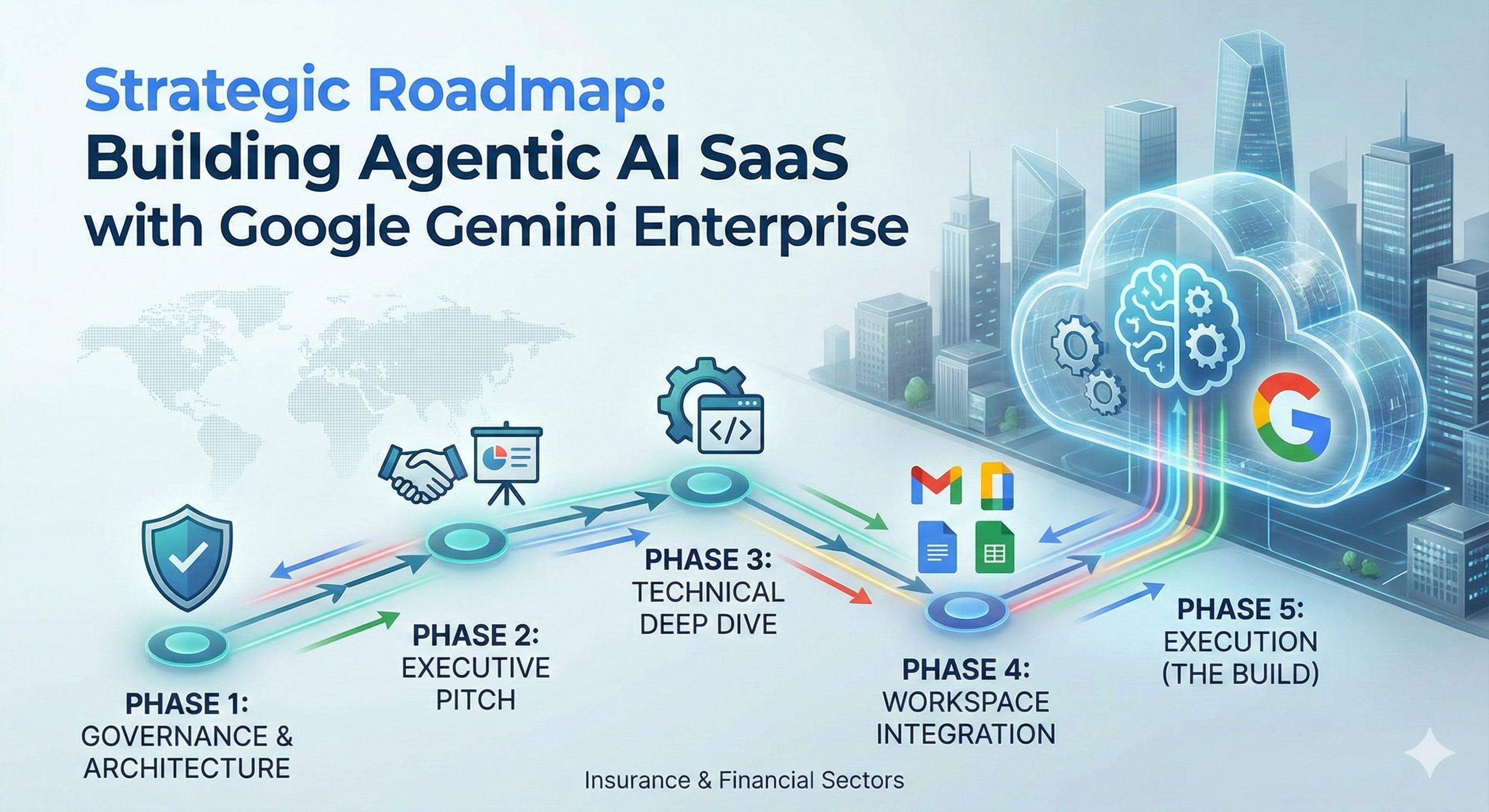Table of Contents
Introduction:
“Your Money’s Best Friend: AI in Finance!”
Ever got a random charge on your card and thought, “Huh?” Or maybe you’ve wondered how your bank always has the right tip for you. Let’s unravel the cool AI tricks behind these money mysteries.
1. Seeing the Money Future:
Ever listened to Uncle Bob at family gatherings, boasting about his uncanny knack for predicting stock market movements? While his “gut feelings” might score occasionally, there’s a much more reliable way to forecast financial trends: predictive analytics.
Imagine if Uncle Bob’s brain was replaced by a supercomputer that could scan millions of data points from past stock market performances, economic indicators, global events, and even tweets! This computer wouldn’t just rely on intuition; it would crunch all this data to make educated guesses about future money movements.
Predictive analytics in finance is like having an advanced weather radar for money. Just as meteorologists use data from satellites, weather stations, and historical trends to tell if it’s going to rain tomorrow, financial experts use predictive analytics to understand where the market might be headed. They can analyze patterns, like how a company’s stock price responded to previous product launches or economic downturns, to predict how it might react in similar situations in the future.
But it’s not just about stocks! Banks use predictive analytics to figure out if someone is likely to pay back a loan. Retail stores use it to determine which products might become popular so they can stock up in advance. Even governments use it to anticipate economic growth and set policies accordingly.
Hedge funds like Renaissance Technologies utilize advanced AI algorithms to analyze vast amounts of data from various sources to predict market movements. By scanning global news, financial reports, social media chatter, and more, AI can spot investment opportunities or risks that might be overlooked by human analysts, leading to more informed investment strategies and better returns.
So, the next time Uncle Bob starts talking about his stock market “hunches,” remember that in the professional world, it’s the power of data and predictive analytics that helps navigate the unpredictable seas of finance. After all, why rely on a gut feeling when you can have a data-driven crystal ball?

2. Banking Made Just for You:
Imagine walking into your favorite coffee shop. Before you even reach the counter, the Starbucks is already preparing your signature caramel macchiato with a dash of cinnamon – just the way you like it. This isn’t just excellent service; it’s a personal touch, a sign that they truly know and understand you.
Now, imagine if your banking experience could be just as personalized and intuitive. With the power of AI, it can be!
AI-Powered Account Management: Your bank’s app tracks your spending habits and offers real-time budgeting tips. If it notices you’re spending more on dining out this month, it might offer suggestions to balance your budget, or introduce you to a new savings plan.
Smart Savings Recommendations: The AI understands when you usually get your paycheck and can suggest the optimum amount to save every month. Maybe it’s noticed you’ve been browsing vacation sites? It might recommend a holiday savings plan.
Security Checks: Ever had the embarrassing moment where your card gets declined for no apparent reason? AI can help here too. It’ll recognize when you’re traveling and won’t flag your foreign transactions as suspicious. And if there’s genuinely unusual activity, you’ll be the first to know.
Loan and Credit Offers Tailored for You: Instead of sifting through countless loan offers, the AI will analyze your financial health and highlight the ones best suited for your needs.
Personal Investment Tips: Based on your risk appetite and past investments, the AI can provide suggestions on where to invest next, be it stocks, bonds, or other assets.
In a world where time is of the essence and every individual’s needs are unique, AI ensures that banking isn’t just about money—it’s about understanding you, offering services tailored to your needs, and making sure that every interaction feels just as personalized as ordering your favorite drink. With AI-driven personalization, banking truly feels more… personal.
3. Keeping Money Sneaks Away

Imagine you’re lounging at home, binging on your favorite show, and suddenly you receive a notification: “Did you just purchase a brand new, high-end camera for $2,500?” Your heart skips a beat! You never made such a purchase. Enter the hero of the hour: fraud prevention AI.
How Does It Work?
- Behavioral Analysis:
- Fraud prevention AI analyzes your spending habits over time.
- If you usually buy books and groceries and suddenly there’s an order for an extravagant diamond necklace, the system raises an eyebrow.
- Geographic Tracking:
- If you used your card in New York in the morning and it’s being used in Paris by evening, the AI flags this suspicious activity. Unless you have a super-fast private jet, this screams fraud!
- Real-time Monitoring:
- Every transaction, no matter how small, is scanned in real-time. So, even if someone tries to test your card with a minor purchase before going for the jackpot, the system is alert.
- Multi-factor Authentication:
- Sometimes, if a purchase seems out of the ordinary, the AI will prompt an additional security question or send an OTP (One-Time Password) to your registered phone number, just to be doubly sure it’s really you.
Benefits:
- Immediate Alerts: As soon as there’s a dubious transaction, you’re instantly alerted, allowing swift action.
- Peace of Mind: Knowing there’s a digital guardian watching over your finances means one less thing to worry about.
- Reduced Financial Losses: Quick detection means lesser chances of substantial financial losses.
In short, the next time you see a strange charge on your card, don’t worry, fraud protection AI is watching out for you, ensuring that your hard-earned money doesn’t fall into the wrong hands.
4. AI Money Gurus:
AI Robo-Advisors: In today’s digital age, imagine having your very own financial wizard right inside your pocket or computer. These aren’t just any ordinary programs; they’re designed to analyze vast amounts of financial data at lightning speed, ensuring you get the most tailored and smart advice.
- Example: Suppose you’ve just landed your first job and are unsure about how to save or invest. Enter Robo-Advisors! After inputting some details like your income, expenses, and financial goals (like buying a car or home), the Robo-Advisor processes this data, compares it with current market trends, and comes up with a personalized investment plan. Whether it’s suggesting the right stocks, bonds, or retirement plans, these digital advisors have you covered.
- What sets AI Robo-Advisors apart from human financial planners is their ability to constantly monitor the markets and adjust your investment strategy in real-time. They can also handle multiple clients simultaneously, ensuring that everyone gets timely advice. Plus, because they operate digitally, they often come with lower fees than traditional financial planners. And the best part? They’re available 24/7, so you can get financial advice even in the middle of the night. Solid advice with the convenience of AI, and as mentioned, no autographs needed!
Companies like Betterment and Wealthfront have developed AI-driven platforms called “robo-advisors”. These platforms use AI algorithms to analyze a client’s financial situation, goals, and risk tolerance, and then automatically design and manage a personalized investment portfolio for them. This not only reduces the cost of financial advisory services but also ensures that investment decisions are made rationally, without human biases.
5. Keeping Your Money Score Up
AI Credit Analysis: In today’s digitized world, Artificial Intelligence (AI) plays the role of a vigilant guardian when it comes to our financial habits. Think of AI as that wise friend, always looking out for you, ensuring you make the right money moves. Here’s how it works:
- Personalized Spending Insights: Just as a close friend might notice your shopping habits, AI keeps tabs on your spending patterns. By analyzing your past transactions, it can provide valuable insights. For instance, if you often splurge on dining out every weekend, AI might gently suggest considering a home-cooked meal once in a while to save some cash.
- Credit Score Monitoring: A credit score is like a report card for adults, and just as you’d want to ace a test, you’d want your score to be high. AI continuously monitors this score, alerting you if it dips. It can even provide suggestions on how to improve it, like paying bills on time or reducing outstanding debts.
- Future Spending Predictions: Based on your past spending and saving habits, AI can predict your future financial trajectory. It’s like having a crystal ball that tells you if you’re on track or if a rainy day is ahead, allowing you to adjust accordingly.
- Safety Alerts: AI isn’t just about managing money; it’s also about protecting it. If there’s an unusual transaction or if you’re nearing your credit limit, AI sends you an alert. This way, it acts as a safeguard against potential fraud or overspending.
In essence, AI Credit Analysis acts as a financial companion, guiding and advising you at every step. It ensures you’re not just spending wisely, but also saving, investing, and planning for the future. So, the next time you think about making a big purchase or wonder about your credit health, remember you’ve got a smart friend in AI, ensuring you always stay in the good books of credit scores.
6. Trading with an Edge:
Remember those times when you played video games and a hint or clue would pop up just when you were stuck, guiding you to the next level? Well, in the vast and complex world of stock trading, AI trading algorithms play a similar role. They act like advanced game guides, analyzing massive amounts of market data in real-time, and offering insights that can be pivotal for investors.
For instance, while a human trader might rely on a mix of news sources, intuition, and basic analytical tools, an AI algorithm can sift through decades of stock market data, international news, social media sentiments, and even weather patterns in mere seconds to predict market trends. It’s like comparing a regular flashlight to a high-beam spotlight in a maze-like game.
AI trading algorithms give investors a competitive edge, akin to having a super-powered hint system in the intricate game of stock trading. With the ability to process and analyze vast datasets at incredible speeds, these algorithms can highlight profitable trading opportunities, even in volatile markets, that might otherwise remain hidden from human eyes. This doesn’t just enhance the chances of making profitable trades, but also aids in risk management, ensuring investors have the best data-driven strategies in place. In a realm where seconds can mean the difference between profit and loss, having an AI-powered ‘hint’ can be the game-changer.
7. Talking to Your Money:

AI Voice Transactions
Imagine being engrossed in cooking your family’s favorite lasagna. Your hands are messy with tomato sauce, and the oven timer is counting down. Suddenly, you remember that today is the last day to pay your electricity bill! In the old days, you’d have to wash your hands, find your laptop or phone, log into your account, and manually complete the transaction. This can be quite a hassle, especially when you’re in the middle of something.
But with the advancement of AI Voice Transactions, this entire process is simplified. Here’s how:
Voice-Activated Payments:
- What it does: Allows users to make payments or complete transactions just by using their voice.
- Example: “Hey [Assistant’s Name], pay my electricity bill using my saved credentials.”
Seamless Integration:
- Integrated Accounts: Once you set it up, your voice assistant is linked to your bank or payment app. With secured access, it can handle transactions on your behalf.
- Confirmation: To ensure security, the assistant might ask for a voice password or send a confirmation code to your phone.
Smart Reminders:
- Bill Alerts: Beyond just making payments, some voice assistants can remind you about upcoming bills.
- Example: “You have a bill due tomorrow. Would you like me to pay it now?”
Safety Features:
- Voice Recognition: To prevent unauthorized transactions, the system can recognize and respond only to the owner’s voice.
- Transaction Limits: Set a maximum amount to ensure large transactions aren’t made without additional verification.
In the lasagna scenario, you can simply say, “Hey [Assistant’s Name], pay my electricity bill,” and continue layering your pasta sheets and cheese. Your assistant confirms the transaction, the payment is made, and you can savor your meal without any financial worries lingering in the background. Welcome to a world where tech truly simplifies life!
8. Peeking into Money’s Future:
AI Risk Assessment: Think of AI Risk Assessment as having a futuristic crystal ball, but instead of just vague predictions, it uses a vast amount of data and powerful algorithms. This “crystal ball” delves deep into the financial world, analyzing patterns, market trends, historical data, and even global events, to give you a clearer picture of potential investment risks.
Example: Imagine you’re considering investing in a startup that’s creating a new kind of electric car. Instead of just going by gut feeling or basic research, an AI-driven system can sift through thousands of data points related to the electric vehicle market, past successes and failures of similar startups, current economic climate, and even the background of the company’s founders. Within moments, it provides you with a risk score. So, if the system flags that 8 out of 10 similar startups failed in the past five years, you might think twice before investing.
On the other hand, if the AI identifies a pattern that suggests the electric vehicle market is on the verge of a boom, and this startup has a unique proposition that stands out from the competition, you’ll feel more confident about your investment choice.
In essence, AI Risk Assessment is like having a super-smart financial advisor that never sleeps, continuously learning and analyzing, ensuring you’re well-informed before making crucial financial decisions.
9. Quick Help with Money:
AI Customer Service Optimization:
Overview: In the digital age, nobody likes to be kept waiting, especially when it concerns their money. Artificial Intelligence is transforming the way financial institutions interact with their customers, making the process quicker, smoother, and more efficient.
Example: Let’s consider ‘BankSavvy’. Earlier, customers of ‘BankSavvy’ had to endure long hold times when they called the customer service line, sometimes waiting for 20 minutes or more just to get a query addressed. Now, with the integration of AI, the bank has implemented an intelligent virtual assistant. When customers call, they’re greeted by this AI system that can understand their queries, access their account details (with permission), and provide instant solutions. Whether it’s about checking an account balance, reporting a misplaced card, or understanding transaction details, the AI-powered system provides immediate answers.
Benefits:
Faster Responses: No more long hold times. The AI system instantly processes queries and provides solutions, reducing the overall time a customer spends on the line.
24/7 Availability: While human agents might be available only during business hours, AI systems can assist customers around the clock.
Personalized Service: Over time, AI can learn from a customer’s past interactions and provide more tailored assistance, enhancing the overall banking experience.
The Future: As AI continues to evolve, we can expect even more nuanced understanding and faster problem resolution, making the phrase “your call is important to us” truly meaningful.
10. Health Checks for Your Wallet:

AI Financial Health Checks: Just as your friend might remind you to maintain a balanced diet or hit the gym, AI tools in the financial sector play a similar supportive role, ensuring your financial well-being. They keep a close watch on your monetary habits, ensuring you stay on the path to financial fitness.
- Personalized Budgeting Recommendations:
- Example: Suppose you spent more on dining out this month than you allocated for. Your AI financial assistant might send a friendly alert, suggesting you to either cut back on eating out or adjust your budget for the month.
- Savings Optimizer:
- Example: AI can analyze your monthly income and expenditures and suggest an ideal amount to set aside as savings. If it notices you’ve been spending less on groceries lately, it might recommend transferring the extra funds to a savings or investment account.
- Debt Management:
- Example: If you have multiple debts, the AI tool can suggest the best strategy to pay them off, such as the avalanche or snowball method, based on interest rates and balances.
- Investment Suggestions:
- Example: Based on your financial goals, risk appetite, and market conditions, the AI might recommend diversified investment options. For instance, if you’re saving for a short-term goal, it might suggest a conservative investment, while a long-term goal might get a recommendation for a more aggressive approach.
- Subscription Audits:
- Example: The AI scans your monthly statements and highlights recurring payments. If it identifies a streaming service you haven’t used in months, it could suggest canceling the subscription to save money.
- Predictive Spending Analysis:
- Example: Using historical data, the AI can forecast your spending patterns. If it predicts you’re likely to go over budget in the upcoming holiday season, it will give you a heads-up in advance.
These AI-driven financial health checks not only give you insights but also actionable advice. It’s like having a financial advisor in your pocket, guiding you towards smart money decisions and a more secure financial future.
11. Picking the Best Money Moves:
AI Investment Personalization:
Imagine shopping for clothes. Just as you might have a personal shopper who understands your unique style, preferences, and budget to pick the perfect outfits, AI can play a similar role in the world of investments.
How It Works:
- Understanding Your Profile: Just as a personal shopper needs to understand your fashion preferences, AI starts by analyzing your financial goals, risk tolerance, and investment history. Whether you’re a risk-taker looking for aggressive growth or someone seeking stable, long-term gains, AI tailors its strategies accordingly.
- Scanning the Market: Your AI “investment shopper” constantly scans the vast market, sifting through stocks, bonds, real estate, and more. It’s like checking all the stores in a mall to find the best deals, but for investments.
- Continuous Learning: One of the strengths of AI is its ability to learn from data. Just as a personal shopper remembers that you didn’t like a particular type of shirt and avoids it next time, AI learns from market trends, global events, and your investment feedback. Over time, its suggestions become even more aligned with your preferences.
- Real-time Recommendations: AI can give real-time advice, alerting you of potential investment opportunities or risks. It’s like having a personal shopper who instantly informs you when a desired item is on sale.
- Diverse Portfolio Creation: Using vast amounts of data and sophisticated algorithms, AI can help diversify your investments, ensuring a balanced portfolio. Think of this as having a wardrobe with a mix of casual, formal, and sporty outfits, suitable for all occasions.
In essence, AI acts as a bridge between your financial aspirations and the complex world of investments, ensuring you make choices that resonate with your objectives, just like a personal shopper would ensure you always look your best.
Easy-Peasy Banking:
Gone are the long bank waits. With AI, banking’s as simple as a walk in the park.
Why’s Everyone Talking About AI in Money Matters?
AI’s changing how we see and handle cash, making everything easier and friendlier.
FAQ for AI in Finance
What is AI in Finance? AI in finance refers to using advanced computer algorithms to perform financial tasks usually done by humans. For example, AI can help banks decide whether to approve a loan by quickly analyzing an applicant’s financial history.
How is AI Being Used in Finance? AI is used in finance for various tasks like fraud detection, managing investments, and customer service. Banks use AI to spot unusual patterns in transactions that could indicate fraud, and investment firms use AI to analyze market data to make stock predictions.
What are the Benefits of Using AI in Finance? The benefits of using AI in finance include faster service, error reduction, and personalized financial advice. AI can process applications instantly, reduce human errors in calculations, and give customers investment advice based on their personal financial goals.
What are the Risks of Using AI in Finance? The risks of using AI in finance include potential biases in decision-making and privacy concerns. If an AI system is trained on biased data, it may make unfair decisions. Also, handling sensitive financial data with AI could lead to privacy issues if not managed securely.
What is the Future of AI in Finance? The future of AI in finance looks at more automation and smarter, more personalized financial services. AI might handle everything from your daily banking transactions to offering financial advice tailored to your specific life situation, potentially making finance more accessible and efficient for everyone.
how is artificial intelligence being used to manage risk in finance?
Artificial intelligence helps manage financial risk by predicting market changes and identifying potential issues before they happen. For example, an AI system might analyze market trends and warn a bank if an investment is becoming too risky.
how is artificial intelligence being used to detect fraud in finance?
AI detects fraud by looking for unusual patterns that might indicate illegal activity. For example, if someone normally uses their card in one city and then it’s suddenly used in another country, AI can flag this as potential fraud.
how is artificial intelligence being used for algorithmic trading?
AI is used in algorithmic trading to make fast stock-buying or selling decisions based on complex market data. For instance, an AI system might decide to sell a stock if it detects a downward trend in the market that could lead to a loss.
how is artificial intelligence being used to improve customer service in finance?
In finance, AI improves customer service by using chatbots to answer common questions or voice recognition to help with phone banking. This means customers can get help quickly, without waiting for a human operator.
how is artificial intelligence being used to ensure regulatory compliance in finance?
AI ensures regulatory compliance in finance by keeping track of all the complex rules and regulations. For example, AI can scan through thousands of transactions to make sure they all follow anti-money laundering laws.
How is artificial intelligence being used to forecast financial markets?
Artificial intelligence is used to predict future trends in financial markets by analyzing massive amounts of data, like stock prices and economic indicators, much faster than humans. For example, an AI system might forecast that a company’s stock will go up because it spotted a pattern that occurred before previous increases.
How is artificial intelligence being used to manage investments?
In investment management, AI helps portfolio managers by suggesting where to invest money for the best return based on historical data and trends. An AI might recommend buying tech stocks if it notices they tend to perform well under current market conditions.
How is artificial intelligence being used in fintech?
Artificial intelligence in fintech, or financial technology, is used to create smarter, faster financial services. This could mean using AI to approve loans in minutes rather than days by quickly analyzing applicants’ financial history.
How is artificial intelligence being used in insurance?
AI is transforming the insurance industry by automating claims processing and assessing risks. For instance, car insurance companies might use AI to analyze driving habits and set premiums accordingly, offering safer drivers lower rates.
How is artificial intelligence being used in banking?
Banks use AI to enhance customer service and security. For example, AI chatbots can answer customer queries any time of the day, and AI systems can detect unusual patterns in account activity that may indicate fraud, alerting the bank and the customer immediately.
“AI Evolution: 13 Stages from Rule-Based to Quantum AI!”
Reference:
https://en.wikipedia.org/wiki/Artificial_intelligence_in_fraud_detection
https://en.wikipedia.org/wiki/Financial_services



